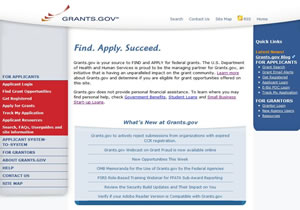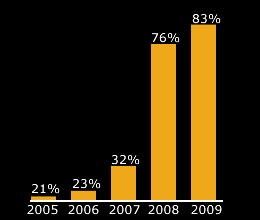The face of America – and of American agriculture – is changing. The number of farms in the United States has grown 4 percent and the operators of those farms have become more diverse in the past five years, according to results of USDA’s most recent Census of Agriculture. The 2007 Census counted nearly 30 percent more women as principal farm operators. The count of Hispanic operators grew by 10 percent, and the counts of American Indian, Asian and Black farm operators increased as well. In addition, the U.S. Census Bureau reports that the number of minority-owned businesses grew more than 45 percent between 2002 and 2007.
 To reflect the diversity of our agricultural sector and business community, USDA is stepping up its efforts to continually supplement its seven Agricultural Trade Advisory Committees (ATACs) with new members, especially those who represent minorities, women, or persons with disabilities. We believe that people with different backgrounds and views will make the work of these committees, and thus of USDA, more effective.
To reflect the diversity of our agricultural sector and business community, USDA is stepping up its efforts to continually supplement its seven Agricultural Trade Advisory Committees (ATACs) with new members, especially those who represent minorities, women, or persons with disabilities. We believe that people with different backgrounds and views will make the work of these committees, and thus of USDA, more effective.
Applicants should represent a U.S. entity with an interest in agricultural trade and have expertise and knowledge of agricultural trade as it relates to policy and commodity-specific issues. For example, Robert Anderson of Sustainable Strategies LLC has served at different points in time on both the Fruits and Vegetables ATAC and the Processed Foods ATAC. Of his experience, Anderson said, “I had the opportunity to meet directly with the highest levels of international trade leadership in the United States and globally. Most importantly, the U.S. government actually seeks our input, listens, and responds to the needs and expectations of the U.S. agricultural industry.”
At a time when our economy is trying to rebound from a serious recession, having a voice on one of these committees can make a significant impact on the government decisions that affect our economic future. That’s because agricultural trade plays an extremely important role in the health of our nation’s economy. U.S. agricultural exports have consistently contributed to the positive U.S. trade balance, creating jobs and boosting economic growth. In fiscal 2011, U.S. agricultural exports were forecast to reach a record $137 billion, which supported more than one million jobs in America this year.









 Grants.gov
Grants.gov Today, in conjunction with the newly-launched
Today, in conjunction with the newly-launched  Green dry cleaners, Green energy. Green puppy food. Green car washes. Green wall paints. Green grease removal.
Green dry cleaners, Green energy. Green puppy food. Green car washes. Green wall paints. Green grease removal. The
The  Here are a few things your can do – at no cost – to jump-start your business continuity plan:
Here are a few things your can do – at no cost – to jump-start your business continuity plan: To reflect the diversity of our agricultural sector and business community, USDA is stepping up its efforts to continually supplement its seven
To reflect the diversity of our agricultural sector and business community, USDA is stepping up its efforts to continually supplement its seven 

